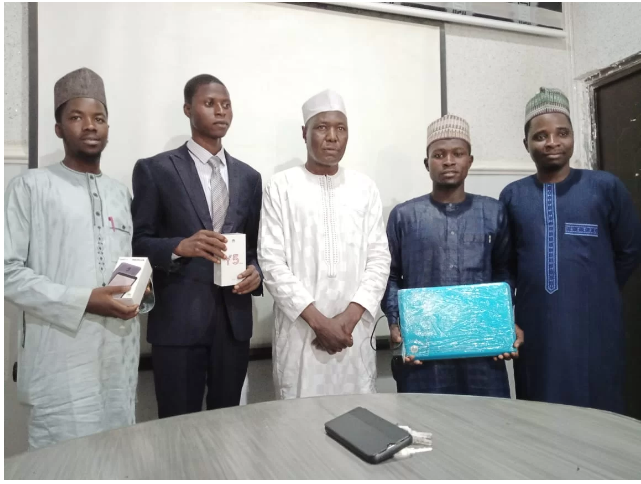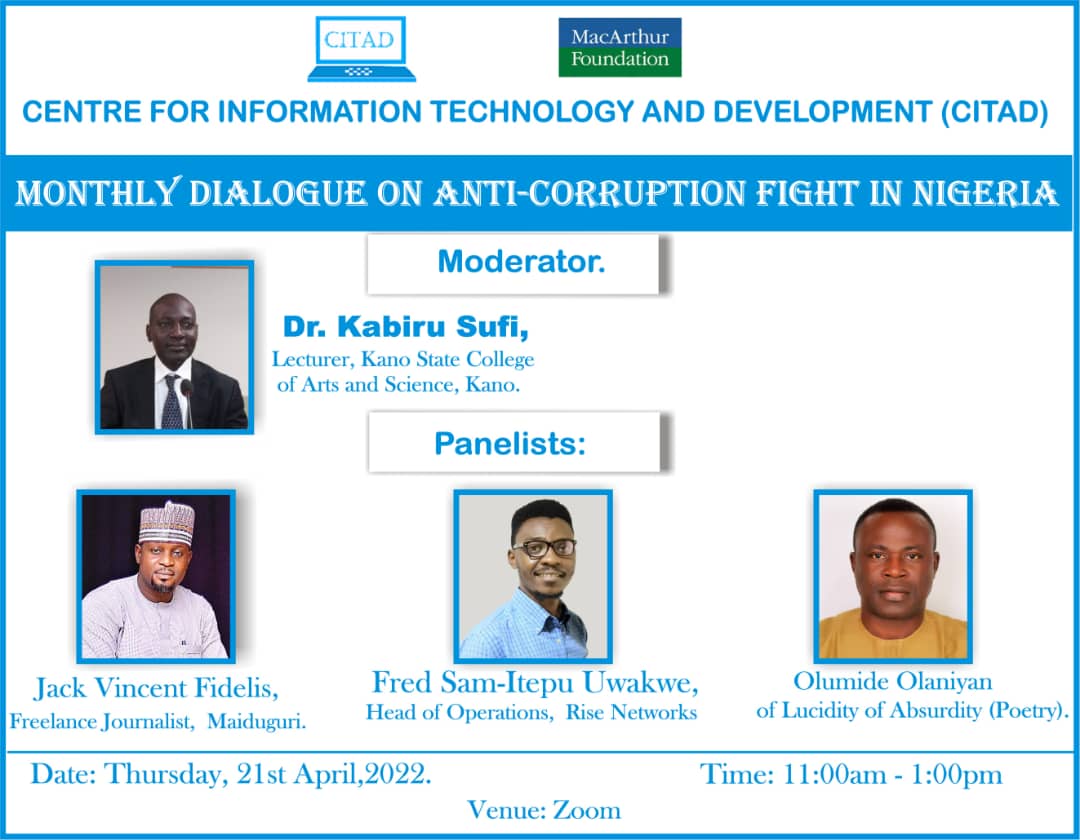Within the past two weeks, the organization has recorded two very disturbing contents on the internet, both of which degrade and dehumanise women and the individuals involved.
The first was a posting of sexual escape of students of Chrisland, Lagos in faraway Dubai which went viral, leading to the suspension of academic activities in the school. While the second concerned a lady in Ado-Ekiti who was invited to a hotel room by her friend who had arranged with his three accomplices, gang-raped her and also posted the act on the internet.
A third case was a lady who was kidnapped for money, it occurred earlier last month in Abuja when a man on social media invited her to his hotel, kidnapped her and demanded 50 Million ransom from her parents.
In a speech delivered by Engr. Yunusa Zakari Ya’u, Executive Director of Centre for Information Technology and Development noted that, there have been many other such cases in which social media friends lured their female friends only to rape them and in some instances, kill them to cover up the crime.
“Cases of young girls falling victims of this technology assisted crime have been on the rise and are contributing negatively to the efforts to address and overcome the gender dimension of the digital divide in the country, which casts women on the negative side of the divide and making it difficult for them to access and make use of the opportunities and benefits digital technology offers for educational advancement, economic empowerment and social inclusion.
“CITAD has for the past five years been engaged in monitoring and countering gender violence online and take this very serious, because we have in an earlier research found that gender-based violence online has been a major factor inhibiting factor for the effective use of digital spaces by girls and women in the country as they have internalised the fear that harmful content online has induced in them”. He said.
Eng. Yunusa further explained that harmful content online is targeted at female politicians and women in careers such as female journalists and academics, with the aim of discouraging them from those spaces, thus furthering their marginalization in those spheres.
Women are cyberphobia as result of gender violence – CITAD
In addition, parents and husbands are also using the same excuse to prevent their daughters and wives from using the internet. Unfortunately, in the world we live today, we must all make use of the internet.
Eng. Yunusa revealed that the country and society that suffer from this criminal misappropriation of the powers of the internet. As learning, commerce, social interactions and government services move online.
Women constitute slightly more than half of the population of the country, as the majority of these women are remaining offline as a result of gender violence online and other harmful contents, which means that a large population of Nigerians are left behind.
“In this situation, Nigeria cannot achieve the sustainable development goals as most of them require effective deployment and use of the internet.
“Girls are at a disadvantage in getting admission to higher education because they have been prevented from learning to use digital skills which are necessary for passing the entrance examinations to the higher institutions in the country.
“Yet here in the North we complain of a lack of sufficient number of female doctors and other health related professionals, even when we deny girls the opportunity to learn digital skills to gain admission to study for the medical profession”. He added.
Women are the majority of citizens who are identity excluded in Nigeria and consequently also financial services excluded, making it difficult for them to access financial services and progress in business.
Lack of identity also is inhibiting their ability to exercise their freedom of movement as some important modes of travel cannot convey people without authenticated identity.
Technology as National threat to gender – CITAD
The Centre for Information Technology and Development confirmed that technology assisted gender violence online making it a serious national problem that the government has to consider and take necessary means to address it.
The Executive Director expressed their empanelling of a Committee by the Federal Government to study and propose solutions to ensuring the protection of children online.
CITAD recommend solutions to technology-assisted gender violence
In this respect CITAD will like to call on the federal government as well as state governments to as a matter of national urgency:
Set up a panel to study and propose solutions to technology-assisted gender violence, including proposing legislations on how to deal with it. In making this call, we would like to caution against throwing the baby with the bathwater. Government should not use this as an opportunity to inhibit access to the internet for citizens but rather improve on how citizens are able to access and safely use the internet.
The Federal Government should incorporate safety and privacy online in the computer studies curriculum of secondary schools. In this way, computer studies can then not just be done to get a credit for admission to higher institutions but also to get life skills that will prepare the students for successful immersion into the digital world.
While we have made computer studies compulsory at secondary schools, we have not incorporated safety issues in the curriculum. These gaps should be addressed quickly because learning computer studies is not just for passing examinations but to gain skills that are needed to fit into the digital world of today.
Lot of the criminal uses of the internet is related to poor understanding of digital rights. In particular, the government itself has not shown proper appreciation of the importance of digital rights. Without a bill of digital rights, the use of the digital space can be counterproductive as we see it now. In this respect, the National Assembly should quickly pass the Digital Rights Bill and the President should sign it.
The federal government should also come up with a national digital inclusion agenda that will address the many challenges that inhibit the effective access to and use of the internet. This will contribute greatly in addressing the various dimensions of the internal digital divide in the country.




